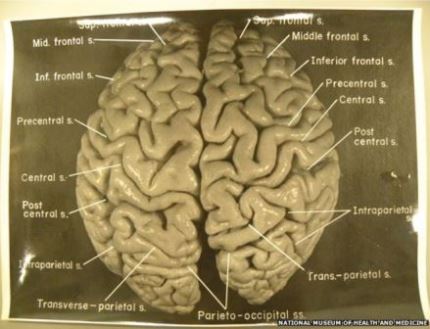Posts Tagged ‘Working-memory’
Busy schedules linked to better memory and cognition among middle-aged and older adults
——- Being Super Busy May* Be Good For Your Brain (Smithsonian Magazine): “There hasn’t been much scientific research on busyness itself, although it’s something that we talk about so often,” explains Sara Festini, a cognitive neuroscientist at the University of Texas at Dallas Center for Vital Longevity, a co-author of the new research published this week
Read MoreVirtual “Brain Games” roundtable: Why we can, and SHOULD, train our brains
In preparation for the new season of National Geographic’s Brain Games, starting this Sunday February 14th, their producers asked us to participate in a virtual roundtable around this thought-provoking question: Do you think individuals can train their brain to respond in a particular way to certain situations, or do you think our brain’s innate “startle response”…
Read MoreStudy: Hearing aids, by reducing cognitive load, can improve brain function in persons with hearing loss
UTEP professor shows that hearing aids improve memory, speech (press release): “A recent study by Jamie Desjardins, Ph.D., an assistant professor in the speech-language pathology program at The University of Texas at El Paso, found that hearing aids improve brain function in persons with hearing loss.
Read MoreStudy: Cognitive deficits continue long term in cancer survivors in domains important for social and executive functioning
Cognitive Deficits Continue Long Term in Cancer Survivors (Medscape): “Although cancer patients frequently experience short-term cognitive deficits, little is known about how long these deficits last or whether they worsen over time. Now, data from a large national sample suggest that cognitive deficits may persist long term.
Read MoreHow Einstein’s brain helps study intelligence and lifelong neuroplasticity
. The strange afterlife of Einstein’s brain (BBC News): “Einstein’s death 60 years ago was just the start of a strange journey for the most prized part of his anatomy, his brain. Stored in jars and on slides, it is still inspiring awe and scholarly research… Harvey had overseen the division of the brain into 240…
Read MoreQuick brain teasers to train your attention and working memory
— Here you have a few fun mental exercises to train your attention and working memory (the capacity to hold multiple pieces of information in the mind, and to use them real-time). Given them a try today and over the weekend…they are not as easy as they may sound! Say the days of the week backwards, then in alphabetical…
Read More





